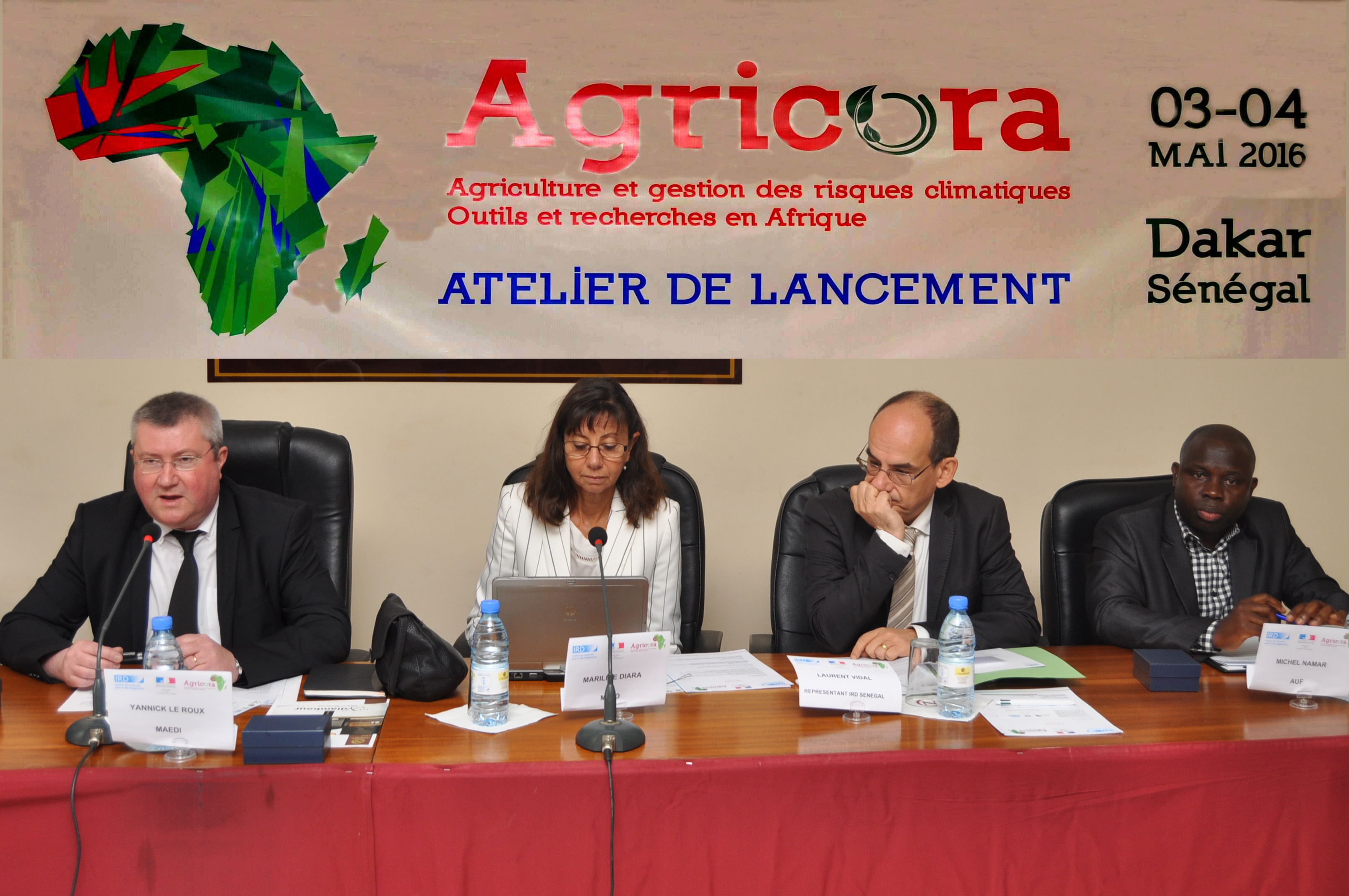
CORAF 08 May 2016 /
Using appropriate tools and knowledge deriving from scientific research for the benefit of the West African agriculture in order to build farmers' resilience to climate change, it is the ambition of the Priority Solidarity Fund (FSP) AGRICORA, a program of the French Ministry of Foreign Affairs and International development coordinated by the Institute of research for development (IRD).
Launched on May 3, 2016, in Dakar (Senegal) for a period of 3 years, AGRICORA aims to enable stakeholders along the agricultural value chain to acquire new knowledge and tools to better address climate risks in the management of production systems through an inclusive learning process and information exchange.
"Farmers constantly live in uncertainty with this threat which is likely to increase in the future," says Benjamin SULTAN, research director at IRD and scientific coordinator of the program. So, "Reversing the trend must be our priority, a matter of survival," added Yannick Le Roux, the French Ministry of Foreign Affairs and International Development.
With a total funding of over 1 million Euros, AGRICORA is implemented through the harnessing of research projects and knowledge in rural areas. It is focusing on three thematic priorities: climate services for agriculture, ecological intensification, water resources management for agriculture. Therefore, projects that involve researchers from North and South, agricultural professionals and NGOs, are selected through calls for proposals.
In total, three projects were selected under the program AGRICORA and their implementation will enable the West African Agriculture to cope with climate hazards. The first project is called "Application des prévisions climatiques et pratiques agricoles dans la traduction des événements pluviométriques extrême du 21ème siècle en zones inondables" (Appliying climate forecasts and agricultural practices for translating extreme rainfall of the 21st century in flood-risk area) - Apte-21. It aims is to translate the high intra-seasonal rainfall variability into intensive cropping option. '' Extreme events such as heavy rainfall and dry spells will be used to develop the potential of intensive family farming and minimize the negative impact of climate risks, '' says Dr. Seyni SALACK, project team leader.
The second project which will benefit from the program is called "Gestion écologique de la fertilité des sols dans les agrosystèmes" (ecological management of soil fertility in mixed farming of agricultural systems for climate smart agriculture); it is developed by Moussa Sano, an agricultural researcher.
The third project titled "Gestion des nouveaux risques et des opportunités des terres inondables pour l'agriculture africaine intelligente face au climat" (managing new risks and opportunities of flood-risk area for African agriculture) - GENERIA, is lead by Dr. Boubacar BARRY and will be implemented in Senegal and Burkina







